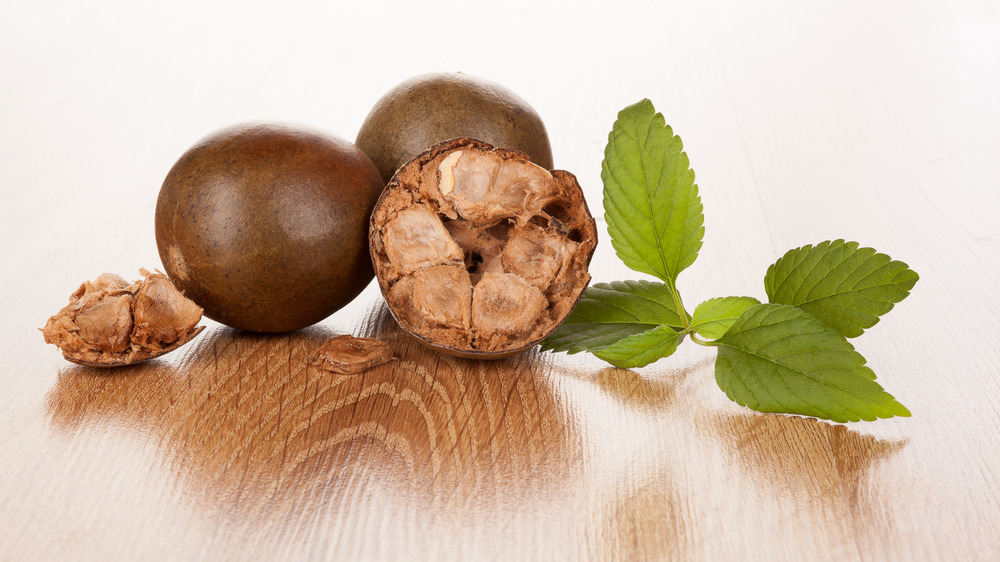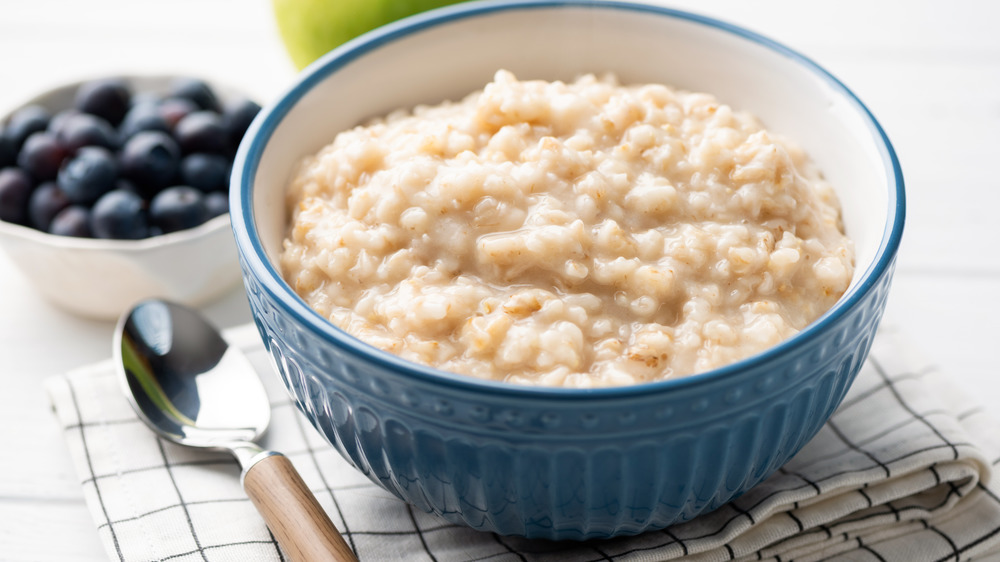Is Monk Fruit Sweetener Really Healthier Than Sugar?
We may receive a commission on purchases made from links.
It seems more and more people are on the hunt for a healthier alternative to sugar, and with good reason. Consuming excess sugar has been shown to increase the risk of chronic health conditions including; hypertension, inflammation, obesity, diabetes, and heart disease (via Harvard Health Publishing). While swapping sugar for lower-calorie imitations seems like a good idea, it may not be in your best interest according to Everyday Health, as some artificial sweeteners may be even more harmful than sugar. That isn't to say there is no hope, as a trending sugar alternative may be the answer to your sweet tooth's prayers.
Although around for centuries, monk fruit was only recently approved by the Food and Drug Administration in 2010. Its sweet extract has since been used as an ingredient in food and drinks, as a flavor enhancer, and as a sugar substitute (via Healthline). What may make this sweetener healthier than others are the mogrosides it contains, which the are antioxidants from which the sweet taste is derived. According to Healthline, this antioxidant may have anti-inflammatory, anti-cancer, and anti-diabetes properties, a compelling argument for its benefits over standard sugar.
Benefits of making the switch
Monk fruit extract contains zero calories and no carbs without any known side effects, making it a win for those watching their waistlines, or for those who are looking to decrease sugar intake. Nutrition expert and author of Eating in Color, Frances Largeman-Roth, tells Health that another benefit of the extract is that it does not spike blood sugar like regular sugar does, which makes it a safe sugar alternative for diabetics.
More promising news, the Food and Drug Administration has labeled monk fruit "generally recognized as safe (GRAS)" for everyone, including pregnant women, children, and diabetics. Founder of Nutritious Life, Keri Glassman M.S., R.D.N., tells Men's Health that monk fruit "also contains antioxidants and is said to support the immune system, digestive tract, glands, and respiratory system."
While the evidence suggests monk fruit is generally safe and possible a better, healthier option than sugar, it is still not a well-researched sweetener when it comes to human consumption. Remember, checking in with your doctor regarding any changes to your diet, especially if you live with dietary considerations, is always a good idea.


